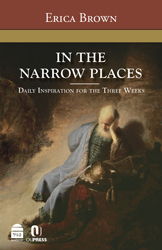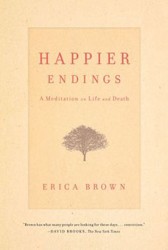Dr. Erica Brown is the author of In the Narrow Places, a daily meditation for each day of the Three Weeks. She will be blogging all week for MyJewishLearning and the Jewish Book Council‘s Visiting Scribe.
I recently spoke at a Melton graduation that marked a two year commitment of adults studying Judaism seriously through a global curriculum out of the Hebrew University. The rabbi who introduced me mentioned my current book In the Narrow Places: Daily Inspiration for the Three Weeks followed immediately by, ‘If you don’t know what the Three Weeks are, please sign up for Melton.” I was happy to be used as an advertisement for the course but less happy with the realization that this time period is virtually unknown outside of traditionally observant circles.
Let’s face it. It is odd to have any commemorative period referred to by the number of days it occupies, and the fact that it happens during the summer does nothing to help its popularity. The Three Weeks is officially called “bein ha-mitzarim” – between the straights or narrow places from the biblical book of Lamentations. This quiet quasi-month of mourning is marked by two fasts: the 17th of Tammuz and the Ninth of Av.
The three week period includes these fasts at both ends and a general mourning period in between which is solemnized by reducing our daily sense of joy. Traditional Jews do not go to public concerts or movies. Many men do not shave. We reduce our personal hygiene somewhat and minimize the role of music in our lives. But these small daily inconveniences have not necessarily added up to the period of introspection that should characterize this time on the Jewish calendar.
 The 17th of Tammuz represents the beginning of the siege of ancient Jerusalem and the weeks that ensue take us sadly to the destruction of both the first and second Temples. The Ninth of Av is the strictest fast we observe after Yom Kippur. It is 25 hours in duration, and we are also forbidden from wearing leather shoes, washing or perfuming ourselves or engaging in sexual relations. Congregants sit on the floor in the evening, listening to the book of lamentations read in a haunting melody and then recite kinnot the next morning, a litany of complex, mostly medieval poems in acrostic fashion that take us from one calamity in Jewish history after another. It is an emotionally draining day. Adding to the hunger is the fatigue of loss that envelopes the mourners who reflect on how tragedy shapes us and our values.
The 17th of Tammuz represents the beginning of the siege of ancient Jerusalem and the weeks that ensue take us sadly to the destruction of both the first and second Temples. The Ninth of Av is the strictest fast we observe after Yom Kippur. It is 25 hours in duration, and we are also forbidden from wearing leather shoes, washing or perfuming ourselves or engaging in sexual relations. Congregants sit on the floor in the evening, listening to the book of lamentations read in a haunting melody and then recite kinnot the next morning, a litany of complex, mostly medieval poems in acrostic fashion that take us from one calamity in Jewish history after another. It is an emotionally draining day. Adding to the hunger is the fatigue of loss that envelopes the mourners who reflect on how tragedy shapes us and our values.
Mourning does shape us. Recognizing what we have lost is an important way that we value what we have. And it is time that as community we stretch back farther than the Holocaust to realize just how persecution and loss has shaped our past and how survival and redemption constantly shape our present and future. The Three Weeks is a gift of collective introspection at a time when we need to enhance our sense of group values and our shared memories.
Dr. Erica Brown’s new book, In the Narrow Places, is now available.
Dr. Erica Brown is a writer and educator who lectures widely on subjects of Jewish interest. She is scholar-in-residence for the Jewish Federation of Greater Washington, DC and a consultant to other Jewish organizations. Dr. Brown is the author of In the Narrow Places, Confronting Scandal, Spiritual Boredom and Inspired Jewish Leadership, and co-author of The Case for Jewish Peoplehood. Her “Weekly Jewish Wisdom” column has appeared regularly in The Washington Post. More at www.leadingwithmeaning.com.



